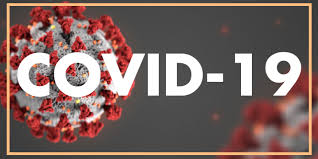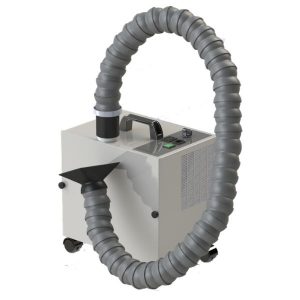
This section is dedicated to understanding more about the Coronavirus and its impacts on our practice. Thank you for being a patient all these years and God bless.
Praise be to God that you are here today! We are so thankful to finally be moving away from this terribly difficult time and tragic loss of life at the hands of the coronavirus. We would not be here today without the grace of God and the hard work of so many. We at Thomas Family dentist would like to thank President Trump and Governor Carney for their leadership at this time; having to make difficult decisions with limited information and in the face of tremendous adversity. We would like to thank the tireless work of the CDC, Delaware Department of Public Health, and all of our scientists and researchers working to learn more about this terrible virus, its effects, and how to overcome. We would like to thank all our hospital workers from physicians, nurses, sanitation crews, food service prep, and maintenance staff along with first responders: paramedics, police, fire, etc. for putting themselves and their loved ones on the line for our benefit. And finally for all those that continued to work and provide us with essential services, especially those in the food industry from farmers, to food processors, to those in transportation, our grocery stores, restaurants, and those delivering food to those that could not leave their homes. From all of us here at Thomas Family Dentist, thank you all for everything you have done. You have been an inspiration to us all and we pray for your strength and good health. We have all been touched by this disease and many of us have lost friends, family, and loved ones. We pray for their souls and the lives of those still here on Earth.

“COVID-19 is caused by a coronavirus called SARS-CoV-2. Coronaviruses are a large family of viruses that are common in people and may different species of animals, including camels, cattle, cats, and bats. Rarely, animal coronaviruses can infect people and then spread between people. This occurred with MERS-CoV and SARS-CoV, and now with the virus that causes COVID-19. The SARS-CoV-2 virus is a betacoronavirus, like MERS-CoV and SARS-CoV. All three of these viruses have their origins in bats. The sequences from U.S. patients are similar to the one that China initially posted, suggesting a likely single, recent emergence of this virus from an animal reservoir. However, the exact source of this virus is unknown.”
To learn more please visit:
https://www.cdc.gov/coronavirus/2019-ncov/index.html
“The virus that causes COVID-19 is thought to spread mainly from person to person, mainly through respiratory droplets produced when an infected person coughs or sneezes. These droplets can land in the mouths or noses of people who are nearby or possibly be inhaled into the lungs. Spread is more likely when people are in close contact with one another (within about 6 feet).
COVID-19 seems to be spreading easily and sustainably in the community (“community spread”) in many affected geographic areas. Community spread means people have been infected with the virus in an area, including some who are not sure how or where they became infected.”
People with COVID-19 have had a wide range of symptoms reported – ranging from mild symptoms to severe illness.
These symptoms may appear 2-14 days after exposure to the virus:
- Fever
- Cough
- Shortness of breath or difficulty breathing
- Chills
- Repeated shaking with chills
- Muscle pain
- Headache
- Sore throat
- New loss of taste or smell
“COVID-19 is a new disease and there is limited information regarding risk factors for severe disease. Based on currently available information and clinical expertise, older adults and people of any age who have serious underlying medical conditions might be at higher risk for severe illness from COVID-19.
Based on what we know now, those at high-risk for severe illness from COVID-19 are:
- People aged 65 years and older
- People who live in a nursing home or long-term care facility
People of all ages with underlying medical conditions, particularly if not well controlled, including:
- People with chronic lung disease or moderate to severe asthma
- People who have serious heart conditions
- People who are immunocompromised
- Many conditions can cause a person to be immunocompromised, including cancer treatment, smoking, bone marrow or organ transplantation, immune deficiencies, poorly controlled HIV or AIDS, and prolonged use of corticosteroids and other immune weakening medications
- People with severe obesity (body mass index [BMI] ≥40)
- People with diabetes
- People with chronic kidney disease undergoing dialysis
- People with liver disease”
The practice of dentistry involves the use of rotary dental and surgical instruments such as handpieces or ultrasonic scalers and air-water syringes. These instruments create a visible spray that contains large particle droplets of water, saliva, blood, microorganisms, and other debris. This spatter travels only a short distance and settles out quickly, landing on the floor, nearby operatory surfaces, DHCP, or the patient. The spray also might contain certain aerosols. Surgical masks protect mucous membranes of the mouth and nose from droplet spatter, but they do not provide complete protection against inhalation of airborne infectious agents.
There are currently no data available to assess the risk of SARS-CoV-2 transmission during dental practice or to determine whether DHCP are adequately protected when providing dental treatment using Standard Precautions. To date in the United States, clusters of healthcare workers positive for COVID-19 have been identified in hospital settings and long-term care facilities, but no clusters have yet been reported in dental settings or personnel.
How has the coronavirus affected Thomas Family Dentist?
Your health is of the utmost importance to us. We have instituted multiple changes to our practice to provide the safest environment that we can. As our scientists continue to learn more and our policy-makers change guidance we will continue to adapt and evolve. Please be patient with us.
If you are feeling unwell, please call and we will be happy to reschedule your appointment. It is not just about your health but about the health of everyone around you. Please be respectful to them. We will be more than happy to reschedule you at no charge.
We are asking all patients to please wear masks to your appointment as per orders from the state. No patient is allowed to enter the facility without a proper face mask.
In order ensure the safety of our patients and staff we are changing our check-in. All patients will be greeted in the vestibule prior to entering our facility. One of our staff will ask you some questions and take your temperature.
You will notice that all books and magazines have been removed from our waiting room. Hand sanitizer is available on the wall of the reception room (hands free) and another dispenser is on the counter of our check-in/check-out desk. Please use the hand sanitizer to prevent the further spread of germs.
We are trying to progress to a more paperless office to further reduce touched surfaces. Please be patient with us during this transition. We are striving to provide you with the safest environment possible at the expense of some efficiency.
You will notice that staff will be wearing face masks at all times. This includes our front desk staff. We know that it can seem distant but it is for your safety and protection at this time.
You will notice that when providing care we will be using face shields. These shields protect us from fluids generated during dental procedures and help keep us safe.
Our face shields are disinfected after each patient, our hands are washed, and our gloves are changed.
 A new piece of technology you will see in our operatories are High Volume Evacuators (HVE). These pieces of equipment were recently purchased to further reduce aerosols. Aerosols are able to stay present for multiple hours and so these units were purchased to absorb aerosols from each appointment and prevent them from lingering from patient to patient. The HEPA Filter is 99.97% effective @ 0.3 Micron.
A new piece of technology you will see in our operatories are High Volume Evacuators (HVE). These pieces of equipment were recently purchased to further reduce aerosols. Aerosols are able to stay present for multiple hours and so these units were purchased to absorb aerosols from each appointment and prevent them from lingering from patient to patient. The HEPA Filter is 99.97% effective @ 0.3 Micron.
COVID-19 has a diameter of 0.12 microns, which is below 0.3 microns. While there is no documented effectiveness for the filter at this particle size, it is important to know that the virus travels on aerosol droplets and not stand alone. According to the CDC and WHO the virus spreads on droplets (5-10 microns) and not nuclei (<5 microns). These droplets that carry the virus are effectively filtered by our HVE.
Due to restrictions on dental care and to reduce exposure for high risk patients we have developed an online emergency form. This form is to be completed for any dental emergency. It allows us to evaluate dental emergencies prior to your office visit and coordinate your care accordingly. Once submitted online Dr. Thomas will evaluate and call or email you. We’ve instituted this system for a few weeks now and it has proven to be effective. For high risk patients we are able to evaluate your needs and coordinate your care without risking exposure. Dr. Thomas usually responds within a few hours but may take up to a day.